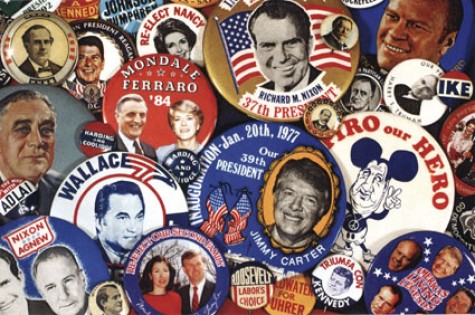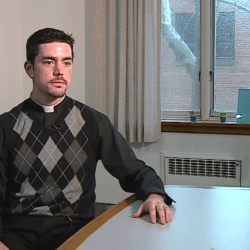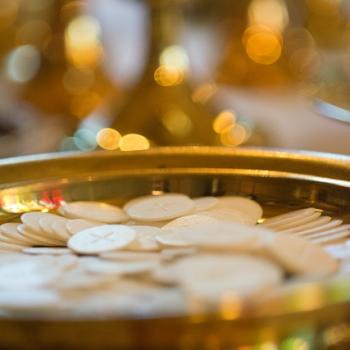
I see it more and more on Facebook: priests and deacons trumpeting their political allegiances and voicing their support for particular candidates. It’s an election year; that’s understandable.
But is it appropriate? I’ve often wondered.
Deacon Bill Ditewig (of happy blogging memory) took a close look at that in this month’s Deacon Digest (full disclosure: I’m on the magazine’s editorial advisory board). While his piece isn’t online, a version of it was posted a couple months back on his blog.
It is important to reflect on our own participation in such exchanges in light of our responsibilities as clergy. It is often not what we say, or don’t say, from the pulpit that can influence others, but our casual “status update” on Facebook, a blog entry or even a tweet can have far-reaching effects.
Canon 285 directs that “clerics are to refrain completely from all those things which are unbecoming to their state, according to the prescripts of particular law.” The canon continues in §3: “Clerics are forbidden to assume public offices which entail a participation in the exercise of civil power,” and §4 forbids clerics from “secular offices which entail an obligation of rendering accounts. . . .” Canon 287, §1 reminds all clerics that “most especially, [they] are always to foster the peace and harmony based on justice which are to be observed among people,” and §2 directs that “they are not to have an active part in political parties and in governing labor unions unless, in the judgment of competent ecclesiastical authority, the protection of the rights of the Church or the promotion of the common good requires it.”
However, c. 288 specifically relieves permanent deacons (transitional deacons would still bound) of a number of the prior canons, including cc. 285 §§3 and 4, and 287 §2, “unless particular law establishes otherwise.” Particular law in this instance is provided by the National Directory on the Formation, Ministry and Life of Permanent Deacons in the United States, which states at #91: “A permanent deacon may not present his name for election to any public office or in any other general election, or accept a nomination or an appointment to public office, without the prior written permission of the diocesan bishop. A permanent deacon may not actively and publicly participate in another’s political campaign without the prior written permission of the diocesan bishop.” The diocesan bishop may also create particular law within his own diocese on such matters. In one case, a diocesan bishop notified his clergy that if anyone could even infer, through their speech, manner or demeanor, which political party or candidate the cleric was supporting, then that cleric had gone too far. While we are each entitled to form our own political decisions for ourselves, we must always be aware of the political lines we must not cross.
And check out more of Bill’s thoughts in Deacon Digest, coming soon to a mailbox near you.











